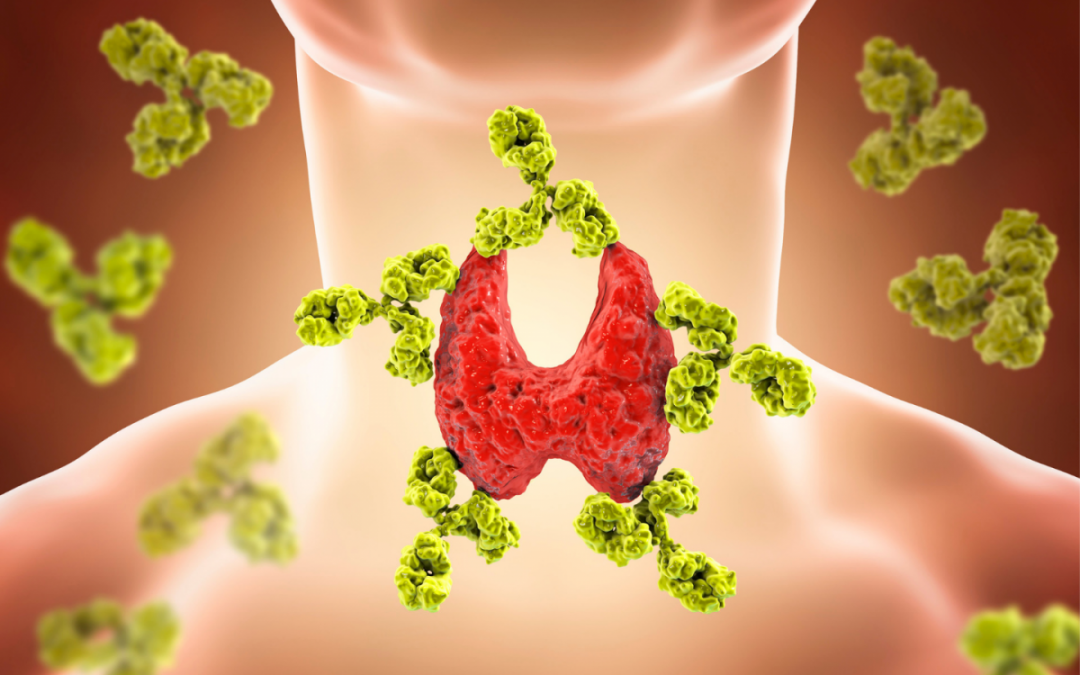There is a connection between the thyroid and menopause and many symptoms are similar so it’s important that you understand the connection. Let’s talk about what is does, the symptoms, how they affect each other and what we can do to help.
What is it? The thyroid is one of the master controllers that regulates nearly every major metabolic function in the body. It regulates fat and carbohydrate metabolism, respiration, body temperature, cholesterol levels, menstrual cycles, skin integrity, blood calcium levels, functioning of the heart and nervous system and more.
What does it do? The thyroid gland secretes thyroxine (or T4) which has minimal metabolic effects on the body; Triiodothyronine (T3) is the active thyroid hormone but only 7% is produced by the thyroid gland. The rest has to be converted from T4. When produced, T4 is bound to a protein (thyroid-binding hormone) allowing it to be transported around the body. When the T4 reaches the kidney and liver, it is converted to T3. Free T3 then gets into the cells to exert its metabolic effect.
Symptoms when it doesn’t work? Occasionally, the thyroid gland doesn’t release thyroid hormones. This is called hypothyroidism or underactive thyroid and is the most common type of hypothyroidism. Women are five to eight times more likely to be diagnosed with hypothyroidism than men, possibly because oral contraceptives, hormone replacement therapy and the hormonal shifts that take place during and after pregnancy, as well as during perimenopause, can all boost risk. Some of the symptoms of hyperthyroidism are similar to those of perimenopause (see the list above)
What happens in (peri) menopause? In peri-menopause and menopause, because oestrogen and progesterone levels change, this can affect your thyroid gland. The thyroid’s function is to take iodine consumed in many foods and combine this with the amino acid, Tyrosine to make thyroid hormones. These hormones control every cell in your body, impacting on your energy production, heat regulation and immunity. Your thyroid health matters in menopause!
So what can we do to help?
If fatigue, lack of sleep, stress, weight gain and depression is laying you low, then get your Dr to check your thyroid levels. You might need some blood-work taken to see if your thyroid hormones, (T3, T4 and TSH) are out of sync.
Many nutritional factors play a role in optimising thyroid function:
- Iodine is essential as it is required for the production of thyroxine, so try to eat foods containing natural sources of iodine. This includes seaweed derivatives, wild salmon, and miso soup.
- Eat foods high in the trace minerals, Zinc, Iron, Selenium and Copper which help regulate iodine stores. Many soils are known to be low in selenium. Add 3-4 Brazil nuts daily which are high in selenium if you don’t have a nut allergy. Shellfish, eggs and dairy are also relatively high in selenium as are beans, peas and lentils.
- Stay away from fads. Don’t drastically restrict calories, especially if you are a woman. Thyroid hormones are very sensitive to your energy intake.
Get enough sleep and manage stress. Low thyroid is often a sign of the body under stress. When you are stressed, the body produces more cortisol (the stress hormone), which may also reduce the amount of T3 in the body. Sleep is also vital in helping to restore many physiological processes in the body, so a lack of it causes the release of cortisol.
Do you want to learn more and become a MenoPro? Join our programmes now.

Recent Comments